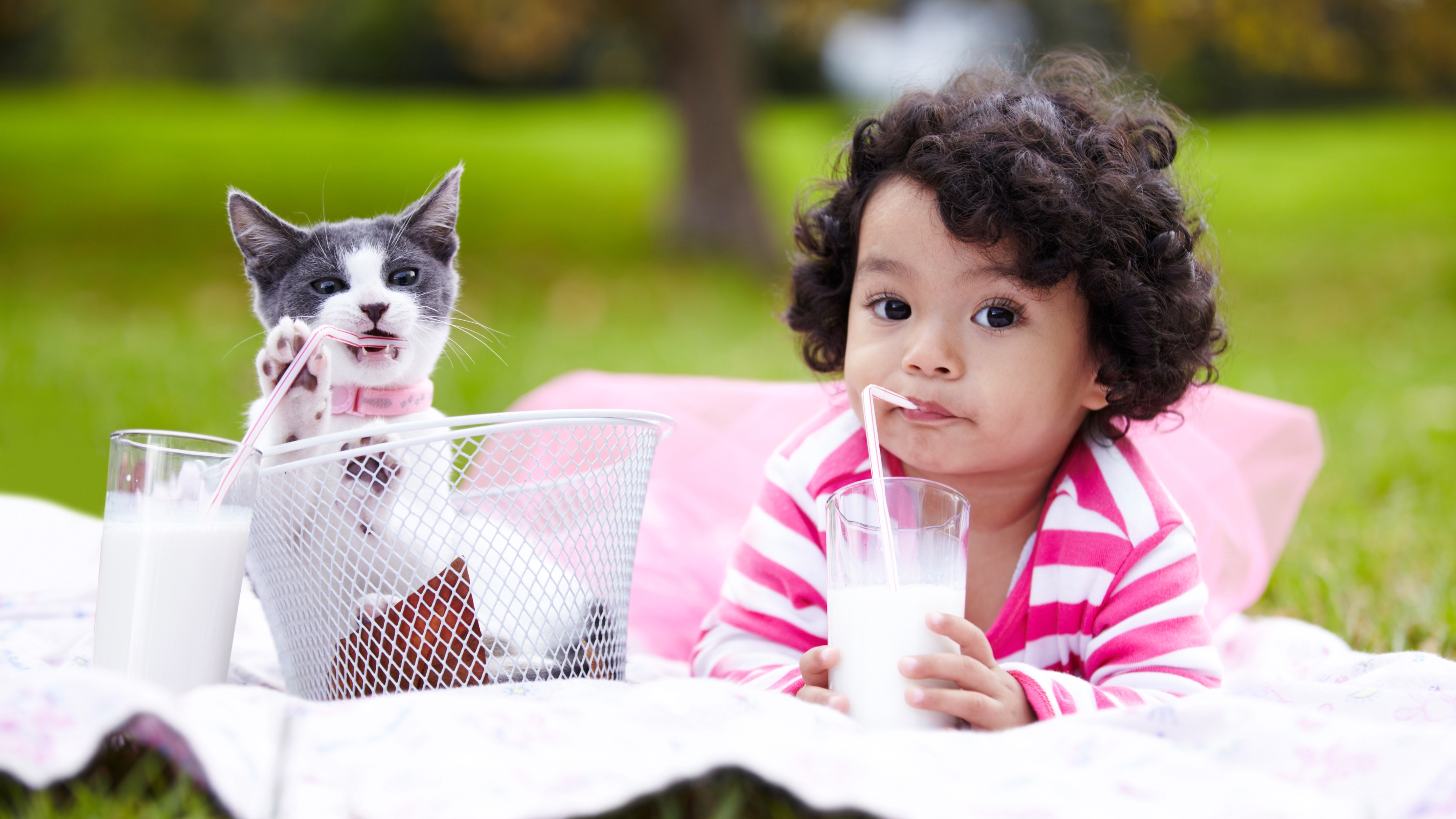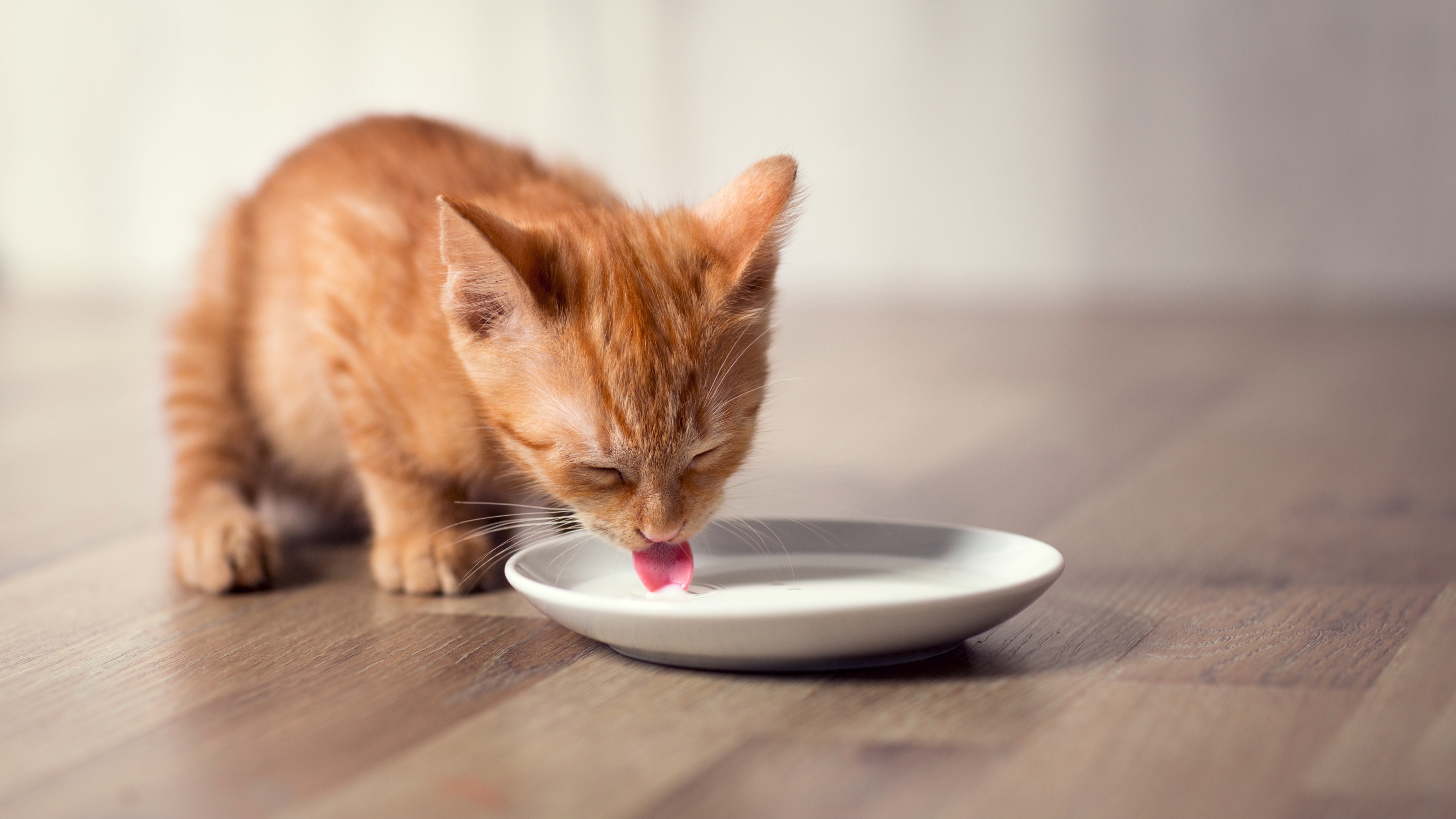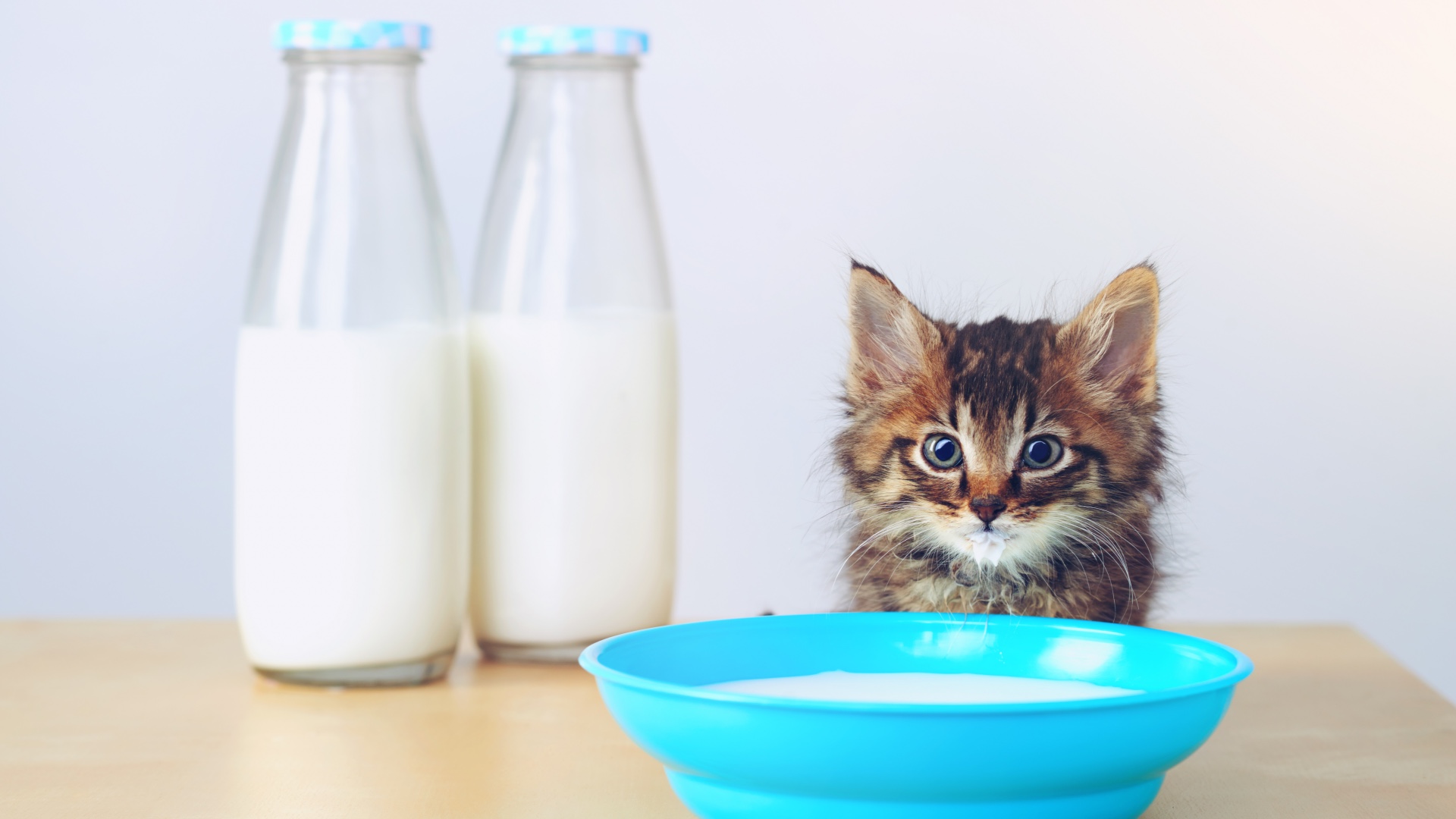Can kittens drink milk? Vet explains the truth and it may surprise you
Our feline friends can’t get enough of the creamy stuff, but can kittens drink milk?

Can kittens drink milk? We know that a saucer filled with warm cow's milk is one of their favorite treats, but we were surprised to learn that while it may seem harmless, milk has the potential to make our fur friend sick.
For the first four weeks of their life, kittens exist solely on their mother’s milk or a good-quality kitten formula. Once they’ve been weaned, vets recommend they slowly transition over to the best kitten food - typically starting with wet food first and then moving on to dry if they enjoy this.
Once they start eating solid food, kittens lose the ability to break down lactose and many go on to become lactose intolerant. Putting a saucer of milk in front of them can lead to a whole host of gastrointestinal problems, including diarrhea and vomiting, which can in turn result in a kitten not eating.
We wanted to understand the complex issue of kittens drinking milk in greater detail, so we turned to expert vet Dr. Hannah Godfrey to find out more. Below, she reveals exactly what happens when a kitten drinks milk and whether there are any safe alternatives you can offer your young fur friend. Let’s take a look…

Is milk good for kittens?
Let's get one thing out of the way first. If you give milk to a kitten, you'll find that they absolutely love it. It's creamy, it's tasty and cats are attracted to the smell of the fats and proteins contained within dairy.
But just because kittens (and adult cats) enjoy the taste of milk doesn't mean it's in any way good for them. The main problem is that most of our feline friends soon become lactose intolerant which means they don't have the lactase enzyme that's needed to digest cow milk.
"I’ve known plenty of kitten owners give their kitten cow’s milk thinking it’s the best thing for them," says Godfrey. "However, any milk other than kitten formula is not good for kittens or adult cats, since they don’t have lactase, the enzyme needed to break down lactose."
Get the best advice, tips and top tech for your beloved Pets
To that end, it should never form part of a kitten's daily diet and neither should it be used as a treat. Instead, you should digest our top kitten feeding tips to see how you can raise a healthy kitty and remember that milk doesn't contain the essential nutrients needed for health or growth, and the nutrients that it does contain aren’t easily absorbed due to the vomiting and diarrhea symptoms caused.
If kittens are given it often, then they could even come to depend on it and prefer to drink rather than eat. Again, this will make them nutritionally deficient while also giving them a diet high in fat and potentially ongoing gastrointestinal upsets.
What milk can kittens drink?

The only milk newborn kittens should drink is the milk produced by their mothers. They will drink this until they are weaned around the age of four-weeks, at which point most (but not all) kittens start to lose the ability to digest the sugar found in the liquid.
If, however, the kitten is an orphan or needs to be fed by hand, they could be given “kitten milk formula”, again up to four or five-weeks-old. This replacer is created to provide the nutrition found in their mother's milk and it contains less lactose or, in some cases, no lactose at all.
"I usually suggest to owners that kittens drink kitten formula milk when they are under four weeks old or during weaning. After this they should only be offered water," says Godfrey.
What happens if a kitten drinks milk?
"Cow’s milk or milk from another animal can cause kittens to develop vomiting or diarrhea, and I still see kittens with upset stomach symptoms because they’ve been given milk," Godfrey explains.
Given how small kittens are, this puts a lot of strain on their tiny bodies. Milk can also cause a cat to become deficient in many vitamins and minerals while consuming a diet rich in fat, potentially causing unwanted weight gain.
Solid food is always the best way forward, supplemented by water. Seek help if you're having problems with a kitten not eating and try our fixes if you're experiencing common kitten behavior problems.
Moggies can also be encouraged to drink water with the best pet water fountains. As we've already said, water is always preferable to milk once a kitten has been weaned.
Should I give kittens goat's milk instead?

You will find many cat owners and some veterinarians will instead recommend giving goat's milk to kittens but it's not quite as simple as switching animals. Goat's milk also contains lactose even if it's not as abundant as in cow's milk and while it may be lower in fat, it's by no means fat-free.
"I don’t recommend that owners give their kittens goat’s milk because it’s not necessary. If they are at or below weaning age they should have kitten formula and if they’re older then water is best," Godfrey advises.
For more advice on what your cat can and can’t consume, take a look at ‘can kittens have catnip?’ for our thoughts on this popular plant and whether it’s safe for your little one. Or, read about what cats should drink.

David Crookes has been a journalist for almost 30 years and he has written for a host of magazines, newspapers, websites and books including the World of Animals Annual, BBC Earth, Live Science, The Independent and Tom’s Guide.
Born in England, he lives with two cats but he’s also keenly interested in the differences between the huge number of dog breeds – in fact, you can read many of his breed guides that he’s written in collaboration with vets here on PetsRadar.
With a lifelong passion for technology, too, he’s always on the lookout for useful devices that will allow people to keep their pets happier and healthier, and provide them more time to spend together.
David has a degree from Durham University, as well as postgraduate diploma in journalism from the University of Central Lancashire.
